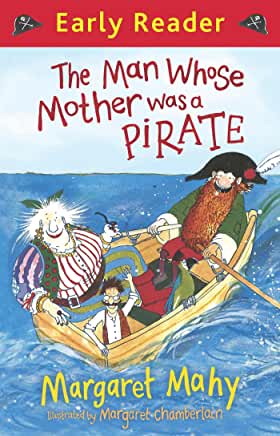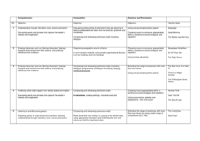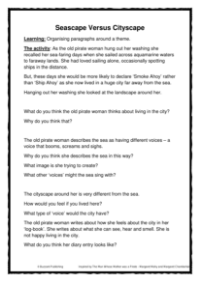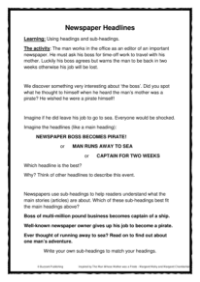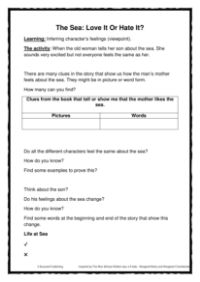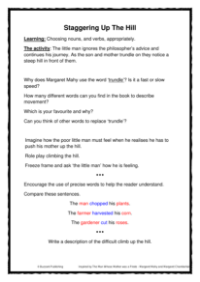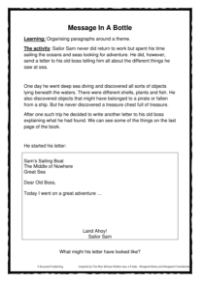Inspired by: The Man Whose Mother was a Pirate - Curriculum Objectives
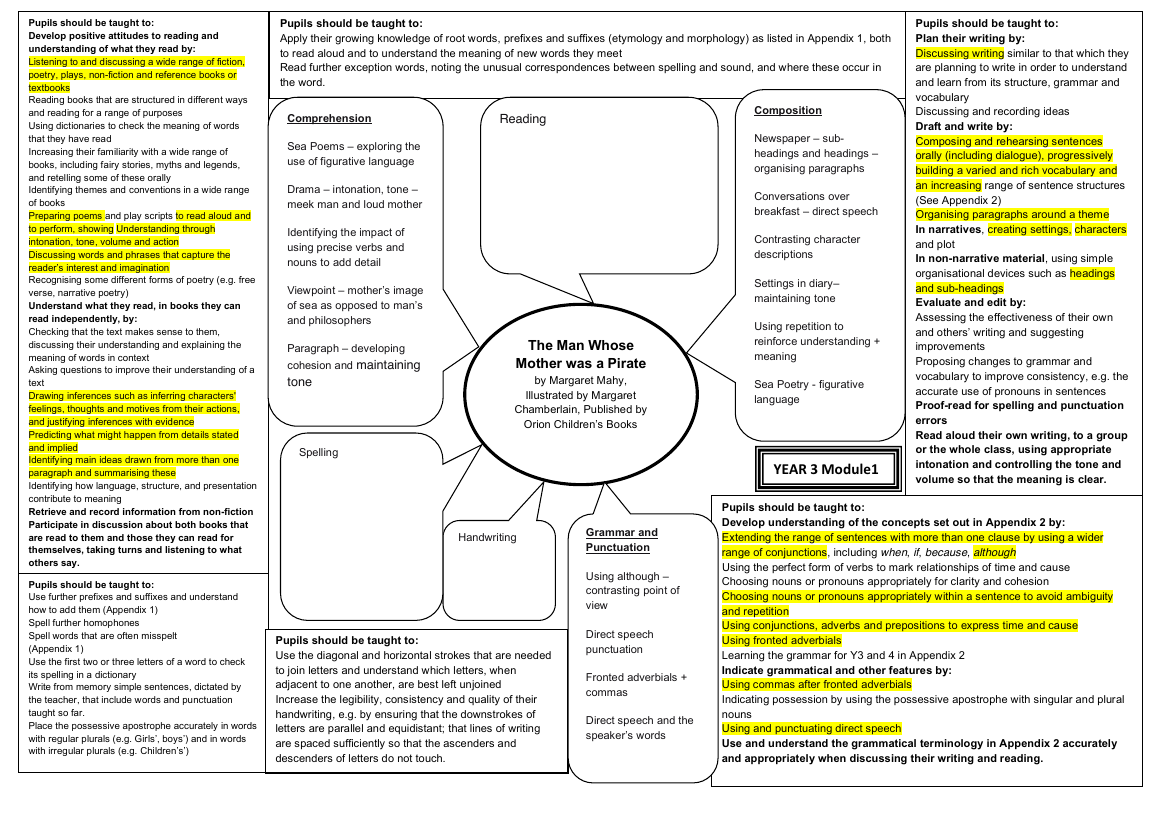
English Resource Description
The curriculum objectives for pupils engaging with "The Man Whose Mother was a Pirate" by Margaret Mahy, illustrated by Margaret Chamberlain, encompass a broad range of reading and writing skills. Pupils are encouraged to develop a positive attitude towards reading through listening to and discussing a variety of literary forms, including fiction, poetry, and non-fiction. They are taught to use dictionaries to understand new words and to increase their familiarity with different genres, such as fairy tales and myths. The curriculum also emphasizes the importance of recognising themes, preparing and performing poems and plays, and discussing language that captivates the imagination. In terms of understanding texts, pupils work on making sense of what they read, asking questions, drawing inferences, predicting outcomes, and summarising main ideas. They also learn to identify how language, structure, and presentation contribute to meaning and to participate in discussions about books.
Writing skills are honed through planning, drafting, evaluating, and editing their work. Pupils learn to plan by understanding the structure, grammar, and vocabulary of similar texts and recording their ideas. Drafting involves composing sentences orally, organising paragraphs, and creating settings, characters, and plots in narratives, as well as using organisational devices in non-narrative material. Evaluating and editing focus on improving writing, proofreading, and reading aloud with clear intonation and volume. Grammar is developed by extending sentence structure, using appropriate verb forms, and choosing nouns and pronouns for clarity. Pupils also learn to use conjunctions, adverbs, and prepositions, as well as fronted adverbials, and to understand grammatical terminology. Handwriting is improved by practicing joined-up writing and ensuring legibility. The module's comprehension activities include exploring figurative language in sea poems, using drama to express intonation and tone, and identifying the impact of precise verbs and nouns. Composition activities involve writing newspaper articles with headings and subheadings, using direct speech in conversations, and describing contrasting characters. Pupils also experiment with using repetition in poetry and various grammatical structures, such as fronted adverbials and the punctuation of direct speech.

